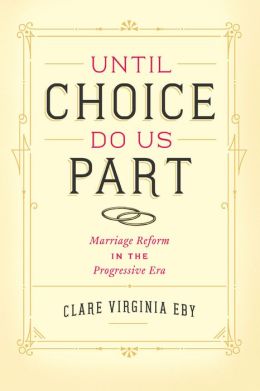Richard A. Epstein's The Classical Liberal Constitution: The Uncertain Quest for Limited Government (Harvard University Press) is reviewed in the Los Angeles Review of Books.
The Federal Lawyer has a new online review of The Law in Nazi Germany: Ideology, Opportunism, and the Perversion of Justice edited by Alan E. Steinweis and Robert D. Rachlin (Berghahn Books)."Beware of scholars claiming the one true path by positioning themselves between two other positions deemed extreme or misguided. In his new book, The Classical Liberal Constitution: The Uncertain Quest for Limited Government, Richard A. Epstein, Laurence A. Tisch Professor of Law at New York University School of Law, rejects both the conservative “originalist” and the liberal “living Constitution” interpretations of the US Constitution, in favor of “classical liberal theory.” Epstein prides himself on pursuing an “unorthodox path” and for going “against the grain of modern Supreme Court jurisprudence and much of the legal scholarship that has grown up around that body of work.”"
 Two new reviews of books about marriage are up. On H-Net, Clare Virginia Eby's Until Choice Do Us Part: Marriage Reform in the Progressive Era (University of Chicago Press) is reviewed. Then, The New York Times has a review of Marriage Markets: How Inequality is Remaking the American Family by family law professors June Carbone and Naomi Cahn (Oxford University Press). Of Eby's book, reviewer Brent Ruswick writes,
Two new reviews of books about marriage are up. On H-Net, Clare Virginia Eby's Until Choice Do Us Part: Marriage Reform in the Progressive Era (University of Chicago Press) is reviewed. Then, The New York Times has a review of Marriage Markets: How Inequality is Remaking the American Family by family law professors June Carbone and Naomi Cahn (Oxford University Press). Of Eby's book, reviewer Brent Ruswick writes,"This thoughtful, complex work examines couples Eby identifies as progressive marriage reformers, spouses who “believed intimate individual decisions could usher in broad social change” and sought to educate the public about marriage reform through the stories they penned and lived (p. 3). Readers with an interest in the Progressive Era, family studies, and American literature are sure to find value in Eby’s deft analysis of reformers whose provocative and messy writings about marriage were only exceeded by their actual marriages."My Notorious Life (Scribner) by Kate Manning is a "historical novel loosely based on a 19th-century midwife named Ann Lohman, who was harassed for performing abortions in New York." The Washington Post interviewed Manning about American attitudes on reproductive rights over time, and you can find her responses here. (You can find an older review of the book here.) Here's the beginning of her response to a question about the Hobby Lobby decision.
"In “My Notorious Life,” a midwife-abortionist is put on trial. For that scene, I borrowed dialogue directly from actual transcripts of a real-life 1870s trial. The midwife and a woman coerced into testifying against her were the only women in the courtroom. The other witnesses were all men. The journalists who put the story in the sensationalized headlines were all men. Women did not then have the vote, couldn’t own property or keep their own money."This weekend the reviewers are all talking about Rick Perlstein's The Invisible Bridge: The Fall of Nixon and the Rise of Reagan (Simon & Schuster). There is an interview with Perlstein in Salon, a review in The New York Times, a review in the Los Angeles Times, a review in the New Republic, and yet another review in The Washington Post. For the Post, H.W. Brands writes,
With this summer marking the 40th anniversary of Nixon's resignation, there's an excerpt of Chasing Shadows: The Nixon Tapes, the Chennault Affair, and the Origins of Watergate by Ken Hughes (University of Virginia Press) in Salon. In The Washington Post there is a double review of Chasing Shadows and The Nixon Tapes: 1971-1972 edited an annotated by Douglas Brinkley and Luke A. Nichter (Haughton Mifflin Harcourt). And the Los Angeles Times has a review of John Dean's The Nixon Defense: What He Knew and When He Knew It (Viking Adult)."Perlstein identifies certain themes. “This is a book about how Ronald Reagan came within a hairs-breadth of becoming the 1976 Republican nominee for president,” he writes. Readers might wonder at this choice of topic, since not only did Reagan not win the Republican nomination, but the Republican nominee, Gerald Ford, lost to Democrat Jimmy Carter. “This book is also a sort of biography of Ronald Reagan,” Perlstein continues. Again a bit curious, given that the book stops well before Reagan achieves the only thing that makes him interesting to biographers or anyone else: the presidency. Perlstein’s broadest theme resolves the puzzle, partly. He describes a shift in the American mood roughly coincident with the bicentennial celebrations of July 4, 1976 — from the disillusionment of the immediate post-Vietnam, post-Watergate years to a reaffirmation of belief in the country’s abiding values. “This book is about how that shift in national sentiment took place,” Perlstein writes."